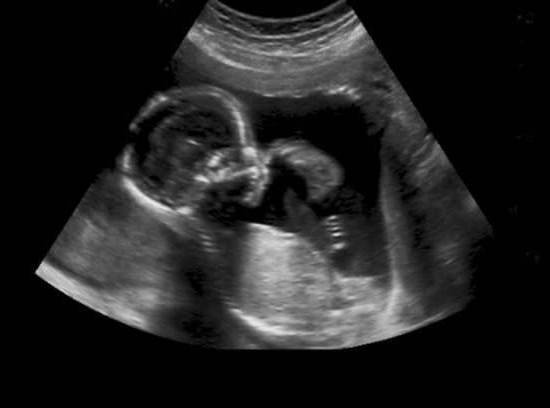Are you experiencing some of the first pregnancy symptoms? Recognizing the early signs and symptoms of pregnancy is important for women who are trying to conceive or have concerns about a potential pregnancy. From missed periods to morning sickness and fatigue, there are several indicators that may suggest a woman is pregnant.
In this article, we will explore the various first pregnancy symptoms that women may experience in the early stages of pregnancy. Understanding these signs can help women recognize when it may be time to take a pregnancy test and seek prenatal care.
Pregnancy is an incredible journey that begins with the first signs that a woman may be expecting. One of the most common indicators is a missed period, which can often be the clearest sign of pregnancy.
However, there are also other early symptoms such as nausea and morning sickness, breast changes, fatigue, frequent urination, food aversions and cravings, as well as mood swings linked to hormonal shifts. Recognizing these early signs and understanding their significance is essential for women who suspect they might be pregnant.
In this comprehensive guide, we will delve into each of these first pregnancy symptoms in detail. By understanding and being aware of these early signs, women can better prepare themselves for the possibilities awaiting them in terms of their reproductive health.
Whether you’re actively trying to conceive or simply want to stay informed about your body’s potential changes during the early stages of pregnancy, this article will provide valuable insights on recognizing and understanding the early signs and symptoms of pregnancy.
Missed Period
A missed period is often the first sign that a woman may be pregnant. It occurs when the fertilized egg attaches itself to the uterine lining, which can cause a delay in the menstrual cycle.
This is typically the most notable and clear indicator for women who have regular menstrual cycles. However, it’s important to note that some women may still experience light bleeding or spotting even after becoming pregnant, so it’s essential to pay attention to other potential symptoms as well.
Other Early Signs and Symptoms of Pregnancy
When a woman experiences her first pregnancy symptoms, it can often be an exciting yet overwhelming time. In addition to a missed period, there are several other early signs and symptoms that she may notice. These can include:
- Nausea and Morning Sickness
- Fatigue and Exhaustion
- Breast Changes
These symptoms can vary in intensity from woman to woman, and some may not experience all of them. However, if you are experiencing any of these symptoms along with a missed period, it may be worth considering taking a pregnancy test.
Taking a Pregnancy Test
If you suspect you may be pregnant based on your first pregnancy symptoms such as a missed period or other early signs mentioned above, it’s important to take a home pregnancy test or visit your healthcare provider for confirmation. Home pregnancy tests work by detecting the hormone human chorionic gonadotropin (hCG) in your urine, which is produced during pregnancy.
It’s best to take the test in the morning when hCG levels are typically higher. If the test result is positive, schedule an appointment with your healthcare provider to begin prenatal care and discuss next steps for your pregnancy journey.
Nausea and Morning Sickness
The exact cause of these symptoms is not fully understood, but hormonal changes are believed to play a significant role. The increased levels of estrogen and progesterone in the body during early pregnancy may contribute to feelings of nausea and discomfort. Additionally, heightened sensitivity to certain smells or foods can also trigger or exacerbate these symptoms. Although this phase can be challenging for expectant mothers, it typically subsides after the first trimester.
Managing nausea and morning sickness during early pregnancy can be a balancing act for many women. Eating small, frequent meals throughout the day, staying hydrated, getting plenty of rest, and avoiding triggers such as strong odors can help alleviate these symptoms.
Some individuals find relief from natural remedies like ginger tea or acupressure wristbands. It’s important to consult with a healthcare provider if nausea and vomiting become severe or persistent as this could be a sign of a condition called hyperemesis gravidarum which requires medical attention.
Fatigue and Exhaustion
During the early stages of pregnancy, experiencing fatigue and exhaustion is a common symptom that many women may encounter. This can be one of the first pregnancy symptoms that women notice, often even before a missed period. The hormonal changes in the body during pregnancy can contribute to this feeling of extreme tiredness. It is important for expectant mothers to understand this symptom and how to manage it effectively for a healthy pregnancy.
Causes of Fatigue During Early Pregnancy
The surge in progesterone levels during early pregnancy can contribute to feelings of exhaustion and the need for more rest. This hormone is essential for maintaining a healthy pregnancy, but it can also lead to drowsiness and lethargy. Additionally, the body is working hard to support the growth and development of the fetus, which can also result in increased tiredness.
Managing Fatigue During Pregnancy
To combat fatigue and exhaustion during early pregnancy, incorporating naps or extra rest periods throughout the day can help alleviate some of these symptoms. It is important for pregnant women to prioritize sleep and establish a regular sleep routine.
Moreover, engaging in light exercise such as walking or prenatal yoga can also boost energy levels and reduce feelings of tiredness. A nutrient-rich diet with plenty of fruits, vegetables, lean proteins, and whole grains can provide sustained energy throughout the day.
Seeking Medical Advice
While fatigue is a common symptom in early pregnancy, excessive tiredness that interferes with daily activities or persists despite adequate rest may warrant medical attention. It is crucial for expectant mothers experiencing severe or prolonged exhaustion to consult with their healthcare provider to rule out any potential underlying conditions such as anemia or thyroid disorders that may be contributing to their fatigue.
They can provide guidance on how to address these issues while ensuring the health and well-being of both mother and baby.
Breast Changes
Understanding Breast Changes During Pregnancy
During the early stages of pregnancy, many women experience changes in their breasts. These changes are often one of the first symptoms women notice when they suspect they may be pregnant. As pregnancy hormones begin to surge, the breast tissue and milk ducts start to expand and blood flow increases, causing the breasts to become tender, swollen, or sore. This is a result of the body preparing for breastfeeding.
Recognizing Breast Changes as a First Pregnancy Symptom
For many women, tender and sore breasts are among the first pregnancy symptoms they experience before even missing a period. It is important for women to pay attention to their bodies and recognize these changes as a potential indicator of pregnancy. While breast tenderness can be caused by other factors such as hormonal fluctuations during the menstrual cycle, if it is coupled with other early signs such as nausea or fatigue, it may signal the onset of pregnancy.
Coping With Breast Changes During Early Pregnancy
There are various ways to alleviate discomfort associated with breast changes during early pregnancy. Wearing a supportive bra that provides adequate coverage can help reduce discomfort, especially while sleeping or engaging in physical activities. Some women also find relief by applying warm compresses to their breasts or taking warm showers. Understanding and recognizing breast changes as an early sign of pregnancy will help women prepare for other potential symptoms and take necessary steps towards confirming their pregnancy through a test.
Frequent Urination
During the early stages of pregnancy, many women experience the symptom of frequent urination. This is often one of the first pregnancy symptoms that women notice and can be quite bothersome. The increased need to urinate is due to hormonal changes and the pressure placed on the bladder as the uterus expands to accommodate the growing fetus.
Some women may find themselves waking up multiple times during the night to use the bathroom, which can disrupt their sleep and lead to feelings of fatigue during the day. It is important for pregnant women to stay hydrated, but they may also need to be mindful of their fluid intake closer to bedtime in order to minimize nighttime trips to the bathroom.
To help manage frequent urination, pregnant women can try some simple strategies such as emptying their bladder completely each time they urinate, practicing pelvic floor exercises (Kegels) to strengthen bladder control, and avoiding caffeine and other diuretics that can exacerbate the need to urinate.
Despite being an uncomfortable symptom, frequent urination is a normal part of early pregnancy and usually improves as the pregnancy progresses. However, if there is any pain or discomfort associated with urination or if there are other concerning symptoms present, it’s important for pregnant women to consult with their healthcare provider.
- Drink plenty of water throughout the day
- Limit fluid intake closer to bedtime
- Practice pelvic floor exercises (Kegels)
- Avoid caffeine and other diuretics
These strategies may help in managing frequent urination and make it more manageable for pregnant women.
Food Aversions and Cravings
During the early stages of pregnancy, many women experience changes in their food preferences and aversions. This can be one of the first pregnancy symptoms that they notice. Some women find themselves craving certain foods, while others are suddenly repulsed by foods they used to enjoy. These unusual cravings and strong aversions can be attributed to hormonal changes that occur during pregnancy.
It is not uncommon for pregnant women to develop a sudden aversion to foods they once loved. On the other hand, some may find themselves craving certain foods that they did not previously have an interest in.
These cravings and aversions can be quite intense and may change from one day to the next. While it is important for pregnant women to maintain a healthy diet, it is okay to indulge cravings in moderation as long as they are safe for consumption during pregnancy.
The exact cause of food cravings and aversions during pregnancy is not fully understood, but it is believed that hormonal shifts play a significant role. It is also thought that these changes may be the body’s way of signaling nutritional needs or protecting against potential harmful substances. Acknowledging these changes in food preferences can help expecting mothers navigate their diets and make adjustments as needed to ensure proper nutrition for both themselves and their developing baby.
Mood Swings
Pregnancy can bring about a rollercoaster of emotions due to hormonal changes. Many women experience mood swings as one of the first pregnancy symptoms. These emotional changes can be quite overwhelming, ranging from feeling suddenly weepy and tearful to being irritable and easily frustrated. The surge in hormones, particularly estrogen and progesterone, can have a significant impact on a woman’s mental state during early pregnancy.
It’s essential for pregnant women to surround themselves with understanding and supportive individuals during this time. The mood swings are often out of their control, so it is crucial for their partners, family members, and friends to be patient and empathetic.
Engaging in stress-relieving activities such as meditation, yoga, or gentle exercise can also help manage these emotional fluctuations. Additionally, maintaining open communication with healthcare providers is vital in case the mood swings become too extreme or affect daily functioning.
In some cases, the emotional changes experienced during early pregnancy might be linked to anxiety or depression rather than just hormonal shifts. It’s important for expectant mothers to recognize when their feelings are interfering with their ability to function or enjoy life. Seeking professional help from a mental health expert if needed is always encouraged for the well-being of both the mother and the baby.
| Early Pregnancy Symptom | Description |
|---|---|
| Mood Swings | Emotional fluctuations due to hormonal changes |
| Support System | The importance of having understanding individuals around |
| Professional Help | Seeking assistance if emotional changes become overwhelming |
Conclusion
In conclusion, the early signs and symptoms of pregnancy can vary from woman to woman, and not every woman will experience the same symptoms. However, being aware of these potential indicators can help women recognize when they might be pregnant. From a missed period to experiencing nausea and morning sickness, fatigue and exhaustion, breast changes, frequent urination, food aversions and cravings, as well as mood swings, all of these symptoms can point to the possibility of pregnancy.
It is important for women who suspect they may be pregnant to take a home pregnancy test or consult with their healthcare provider for confirmation. Early detection allows for proper prenatal care and enables women to make necessary lifestyle adjustments in preparation for their pregnancy journey. Additionally, seeking support and guidance during this time is crucial, whether it’s from a partner, family member, friend, or healthcare professional.
Women should also keep in mind that certain first pregnancy symptoms can be similar to premenstrual symptoms or related to other health conditions. Therefore, it’s essential not to jump to conclusions but rather seek professional medical advice for an accurate assessment. Ultimately, staying informed about the potential signs of early pregnancy empowers women to take charge of their reproductive health and make informed decisions about their future.
Frequently Asked Questions
When Do First Pregnancy Symptoms Start?
First pregnancy symptoms can start as early as a week after conception. These symptoms may include fatigue, nausea, breast tenderness, and frequent urination. However, the timing and severity of symptoms can vary for each woman.
How Does It Feel to Be Pregnant for the First Time?
Being pregnant for the first time can feel overwhelming, exciting, and even a bit scary. There’s a mix of emotions as you process the reality of becoming a parent. Physically, there may be new sensations and discomforts that come with the changes happening in your body.
What Does Early Pregnancy Feel Like?
Early pregnancy can feel different for every woman, but common experiences include fatigue, nausea (often referred to as morning sickness), breast tenderness, and mood swings. In addition, some women may also experience food aversions or cravings and an increased sense of smell. Each woman’s experience is unique and can vary in intensity.

Welcome to my fertility blog. This is a space where I will be sharing my experiences as I navigate through the world of fertility treatments, as well as provide information and resources about fertility and pregnancy.





